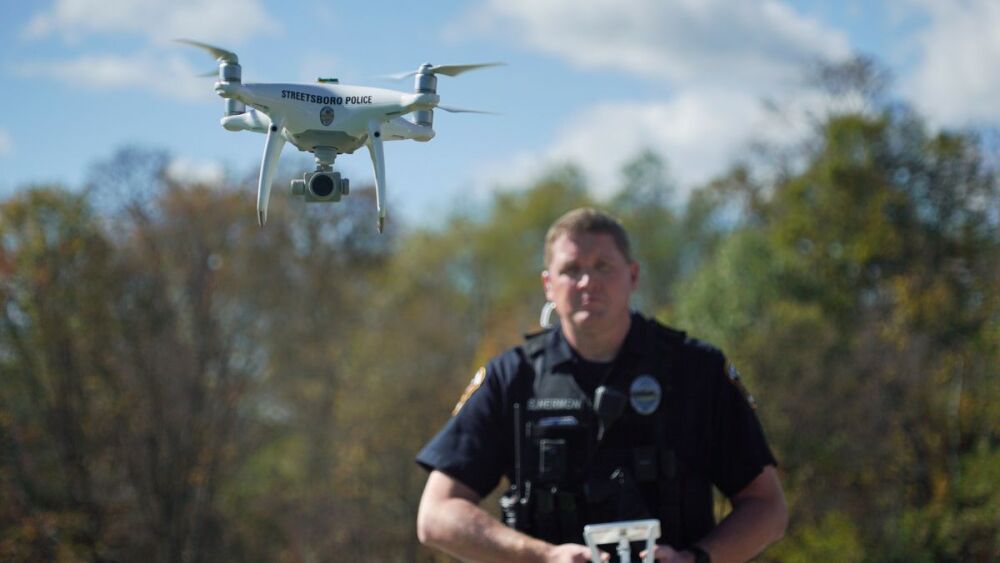Police Training
Police1’s Police Training and Law Enforcement Training course resources help to keep officers safer on the street by providing access to information that supports professional development and improves training.
As online grooming reshapes missing-child cases, the National Child Protection Task Force is helping agencies use technology and legal tools to locate endangered children
Police agencies are capturing unprecedented amounts of video, but many lack a strategy for turning that data into learning
What happens after chemical agents are deployed matters as much as the decision to use them, from decontamination and medical care to risk mitigation and public trust
The link between reduced burnout, improved retention and smarter workflows
Cadet Ryan Phillip Ferreira appeared to suffer a medical emergency during a physical abilities course, the Jackson County Sheriff’s Office stated
The dashcam video of the murder of Constable Darrell Lunsford on January 23, 1991, became an essential officer safety training tool
When enforcement unfolds on camera and tensions run high, preparation, command decisions and leadership — not rhetoric — determine what happens next
The margin between prevention and response is shrinking — and the stakes are rising
The five-day conference aims to improve transparency, officer safety and public trust through structured training and workshops
Public reaction to the Minneapolis ICE shooting reflects widespread misunderstandings of how deadly force in vehicle encounters is evaluated under law, policy and training
It’s not about being funny. It’s about reading the room, adapting under pressure and saying the right thing when scripts fail
Free instructional materials for small departments are hard to come by, despite how widely the profession — and outsiders — tout the importance of procedural justice training
Officer Dack Thompson completed the 585-hour program to meet dual-role requirements in Rohnert Park’s consolidated police-fire department
Effective instructors require ongoing development, real-world problem-solving skills and legal articulation — not just a certificate on file
Intense de-escalation and trauma training prepare the next generation of officers for the realities of the job
Their deep expertise in advanced VR simulation platforms is backed by years of first-hand front-line military and policing experience
Empowering investigators to focus on judgment, strategy and justice
With longer wait times for backup and fewer basic technologies, rural officers face safety risks that often go unnoticed outside their communities
Survey responses show officers want existing situational awareness tools to work consistently, seamlessly and intuitively before agencies invest in anything new
New research from Texas State University’s ALERRT Center examines whether VR can elicit stress responses similar to live scenarios — and what that means for modern police training
I believe I am witnessing a paradigm shift that will compel us to rethink nearly everything we’ve accepted as normal in control tactics
Why effective suspect interviews depends less on scripted techniques and more on adaptable, field-proven strategies officers can use when conversations turn unpredictable
As criminals increasingly move illicit proceeds into cryptocurrency, investigators need training to trace digital funds, seize assets and follow the money with confidence
A photo essay from the multi-day competition in Nevada that brought together elite law enforcement teams to test tactical skill, teamwork and precision while supporting Fallen Blue
Concise, actionable tips outlining how police agencies can strengthen planning, close operational gaps and address emerging threats ahead of high-risk events
Why foundational, reproducible, courtroom-ready methods remain the missing piece in effective crypto investigations and victim asset recovery
It’s an apples-to-oranges comparison that distorts the training debate and ignores the massive resource gap between elite units and local police
Retired King County Detective Kristi Bridgman also founded the K9 Kuva Memorial Foundation, which promotes educational dog events at schools and supports LE
Meet Joe Cirrito, a 22-year veteran Los Angeles Police Department officer, whose daily rituals and unwavering purpose now shape the next generation of LAPD recruits
MOST POPULAR
- Key considerations for a law enforcement drone policy
- 1 simple strategy for dealing with a driver who refuses to give you their license
- 6 tips for safe and successful traffic stops
- 6 officers no longer employed at Fla. sheriff’s office following FBI National Academy cheating investigation
- The story of the fatal Fargo ambush from the only officer left standing to eliminate the gunman






























